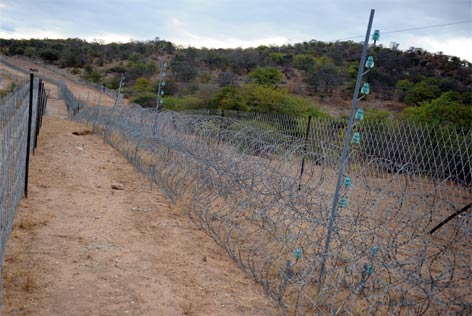
FOR MANY, the border town of Musina promises to be the gateway to a better life. It is the northernmost town in Limpopo province, South Africa, and is the first stop for migrants travelling from Zimbabwe.
Taku Dzimwasha
Amid the chaos in the streets, there are children begging or selling cigarettes and sweets. Many of them have travelled unaccompanied from all over Zimbabwe and risk exploitation and abuse from omalayitsha — taxi drivers/smugglers — who steer them into a cycle of debt and forced labour. Girls are particularly vulnerable to sexual violence.
Precious made the journey when she was 16. She was looking for domestic work to support her family after the death of her father and hoped to make enough money to help pay for her mother’s medicine and siblings’ school fees. She met umalayitsha who promised to give her a job and a place to stay, so she crossed the border with him.
“I worked for him for a few months, cleaning and cooking, but he never paid me,” Precious recalls. When I demanded my overdue money, he said I would have to have sex with him, then he would give me the money, but I refused, so he beat me. After this I was too scared to ask for my money, so I did whatever he asked.”
Netty Musanhu, director of Musasa Project, which supports people who have experienced domestic violence in Zimbabwe, says: “Many of the forcibly returned girls have experienced terrible things like violence and rape. There are huge protection issues for young girls with no documentation and it is common for them to disappear completely.”
Precious would experience further sexual abuse over several months. “Every day I wanted to go to the police, but I did not want to be deported. With the little money I was making I was able to send it home to my family, so my mother could buy her pills and my brother and sisters could go to school,” she said.
When Precious discovered she was pregnant she reported the abuse to the police. “But . . . they did not do anything. In fact, the police held me in a cell with adults before telling me that they were going to deport me,” she says.
- Chamisa under fire over US$120K donation
- Mavhunga puts DeMbare into Chibuku quarterfinals
- Pension funds bet on Cabora Bassa oilfields
- Councils defy govt fire tender directive
Keep Reading
It was only when she told her story to International Organisation for Migration (IOM) staff at the Tongogara refugee camp in Zimbabwe that her abuser was arrested.
“In South Africa this situation of forced labour is typical,” Marija Nikolovska, project manager of irregular migration programmes for IOM South Africa, explained. “Migrants are unaware of their rights and are afraid to go to the police because they don’t want to be deported or are afraid the police will not act.”
The migrants who manage to secure work often face exploitation, Nikolovska adds. “Those who find employment are paid less than South African workers and sometimes have their salaries withheld for months. If they protest they risk losing their jobs or being reported to the authorities.”
Many girls are also coerced into sexual relationships with older men who exploit their lack of experience by promising wealth or South African citizenship.
Some enter pseudo-marriages in which their “husbands” lie to the authorities and community and pretend the pair have wed. These girls are particularly vulnerable to domestic abuse and sexually transmitted illnesses; some disappear without trace.
Recent figures released by the South African authorities show that of the 2 000 illegal migrants repatriated each week, up to 20% are unaccompanied children. About 350-400 Zimbabwean children cross the border each day without passing through official checkpoints, according to Save the Children Zimbabwe.
Many rely on omalayitsha, who act as their guardians, sometimes with parental permission, to cross the border. While some omalayitsha operate solely as middlemen, many are part of a network who rob, sexually assault or enslave the migrants.
In Musina, as well as Beitbridge, another border town, migrant girls are sometimes forced to work as prostitutes, Natalia Perez, programme director of IOM Zimbabwe, said. “Beitbridge and Musina are busy transit routes, many young girls work in prostitution where the risk of being exposed to HIV is high.”
Boys are also vulnerable and can be found begging, sleeping rough or in low-paid jobs. They are sometimes targeted by amagumaguma (gangs of robbers) and face mistreatment by the police.
According to Médecins Sans Frontières, the international medical organisation, more than 75% of the 4 000-5 000 migrants they treat each month have been raped while crossing the border, with nearly 60% violated by more than one perpetrator.
Although the South African government has taken steps to improve the rights of migrants through anti-trafficking laws and relaxing visa requirements for Zimbabweans, many still attempt to cross the border illegally, unaware of the updated legislation.
“The myth of South Africa as a place of opportunity is a powerful one which cannot be broken,” Perez said.
“Even after such traumatic experiences, many children attempt to cross the border again because the situation at home has not changed. To prevent them from seeking this path the situation at home must be improved.”
— The Guardian










